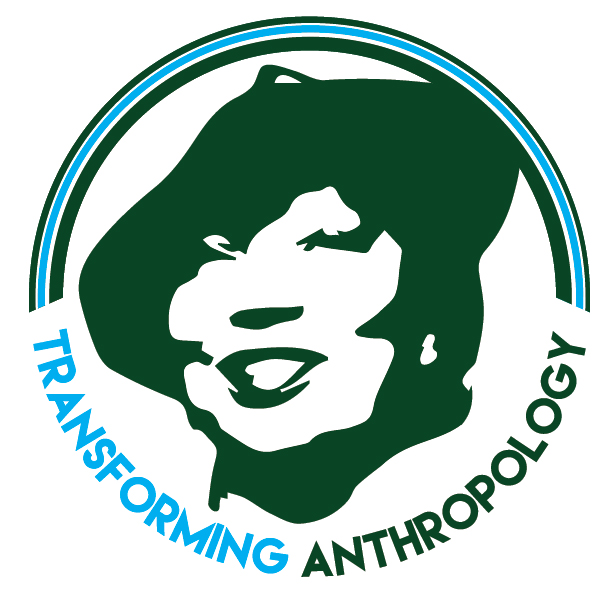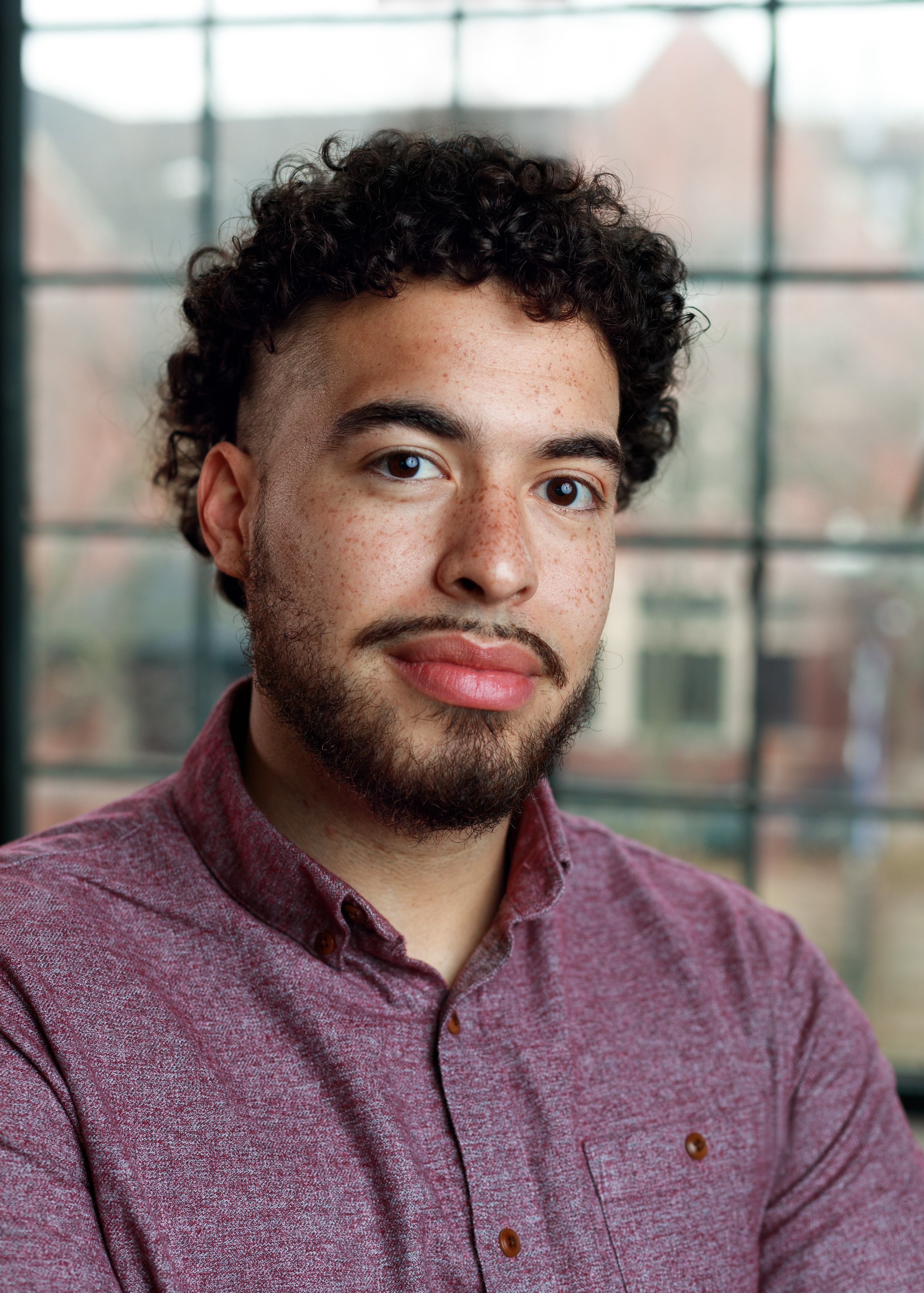Christen a. Smith
co-Editor-in-Chief
Christen A. Smith, Ph.D. is a Black feminist anthropologist, social justice advocate, founder of Cite Black Women and Associate Professor of Anthropology and African and African Diaspora Studies at The University of Texas at Austin. Her research focuses on engendered anti-Black state violence and Black community responses to it in Brazil and the Americas. Her work primarily focuses on transnational anti-Black police violence, Black liberation struggles, the paradox of Black citizenship in the Americas, and the dialectic between the enjoyment of Black culture and the killing of Black people. Her book, Afro-Paradise: Blackness, Violence and Performance in Brazil uses the lens of performance to examine the immediate and long-term impact of police violence on the Black population of Salvador, Bahia, Brazil and the grassroots movement to denounce and end this violence. Her more recent, comparative work examines the lingering, deadly impact of police violence on black women in Brazil and the U.S.
RYAN CECIL JOBSON
co-Editor-in-Chief
Ryan Cecil Jobson is an anthropologist and social critic of the Caribbean and the Americas. His research and teaching engage issues of energy and extractivism, states and sovereignty, climate and crisis, race and capital. His first book manuscript, The Petro-State Masquerade, is a historical ethnography of fossil fuel industries and postcolonial state building in Trinidad and Tobago. Excavating more than a century of commercial oil, gas, and petrochemical development, Jobson theorizes how the tenuous relationship between hydrocarbons and political power—enshrined in the hyphenated form of the petro-state—is upheld through a “masquerade of permanence” sustained by speculative offshore and deepwater extraction. Meanwhile, working class Trinbagonians play a mas of their own—in the form of strikes, protests, and the Carnival road march—to stage direct democratic alternatives to the fossil economy. Jobson is at work on two subsequent projects: A collection of essays on climate change and the receding horizon of habitability in the Caribbean and a manuscript on anthropological theory and method in an era of climate extinction. Jobson is the Neubauer Family Assistant Professor of Anthropology at the University of Chicago, where he also holds faculty appointments in the Committee on Environment, Geography, and Urbanization (CEGU), the Center for Latin American Studies, and the Department of Race, Diaspora, and Indigeneity.
Erica Lorraine Williams
Associate Editor
Erica Lorraine Williams is Associate Professor of Anthropology and Department Chair of the Sociology and Anthropology department at Spelman College. She earned her Ph.D. and M.A. in Cultural Anthropology from Stanford University, and her B.A. in Anthropology and Africana Studies from New York University. Her first book, Sex Tourism in Bahia: Ambiguous Entanglements (2013), won the National Women’s Studies Association/University of Illinois Press First Book Prize. She is co-editor of The Second Generation of African American Pioneers in Anthropology (2018), and Contributing Editor to the Handbook of Latin American Studies (Sociology: Brazil section). She has published peer-reviewed journal articles in Feminist Anthropology, Feminist Studies, Gender, Place, and Culture: A Journal of Feminist Geography; as well as several book chapters in edited volumes. She is currently working on two book manuscripts: 1) an ethnography of Black feminist activism in Salvador, Brazil; and 2) a Black feminist autoethnographic travel memoir. Winner of the Vulcan Teaching Excellence Award in 2013, she teaches courses in anthropology on gender and sexuality, race and identity in Latin America, globalization, and feminist ethnography.
Justin Hosbey
Associate Editor
Dr. Hosbey (he/his) is a humanistic social scientist and Black studies scholar. His ethnographic work explores Black social and cultural life in the U.S. Gulf Coast and Mississippi Delta regions, focusing on the ways that southern Black communities articulate modes of citizenship that demand the interruption of racial capitalism and ecocide. His current ethnographic project utilizes research methods from the digital and spatial humanities to understand and visualize how the post-Katrina privatization of neighborhood schools in low-income and working-class Black communities has fractured, but not broken, space and placemaking in Black New Orleans.
Bryce henson
Associate Editor
Dr. Bryce Henson is an assistant professor in the Department of Communication & Journalism and associate faculty in the Africana Studies Program at Texas A&M University. He received his PhD in Communications & Media with a focus on cultural studies and interpretative theory from the Institute of Communications Research and a graduate minor in Latin American & Caribbean Studies at the University of Illinois, Urbana-Champaign. His research and teaching interests include African Diaspora studies, cultural studies, global Black intellectual traditions, urban studies, marronage & aquilombamento, media studies, popular culture, qualitative methods, and critical ethnography. He is the author of Emergent Quilombos: Black Life and Hip-Hop in Brazil (University of Texas Press, 2023). The book won the following awards: the 2024 National Communication Association (NCA) Critical/Cultural Studies Division Book of the Year Award, the 2024 NCA Ethnography Division Best Book Award, and the 2024 NCA International & Intercultural Division Best Book Award. In addition, the book received honorable mention for the 2024 Roberto Reis First Book Prize Award from the Brazilian Studies Association. Dr. Henson is also a co-editor of Spaces of New Colonialism: Reading Schools, Museums, and Cities in the Tumult of Globalization (Peter Lang, 2020). His journal articles and book chapters are published across outlets in communication, cultural studies, Black studies, Latin American studies, and anthropology.
nessette falu
book and film review editor
Dr. Nessette Falu is a Black queer feminist and cultural anthropologist with sub-disciplinary specializations in medical anthropology, Black queer studies, Black feminist studies, and reproductive justice studies. Her intellectual work analyzes the intersections of anti-Blackness, heteronormativity, medicine, trauma, resistance, and freedom. She intervenes, broadly, to understand forms of hidden, silenced power and the abuse of power in gynecology and medicine. Her past clinical practice of seventeen years as a Physician Assistant (neurosurgery, internal medicine, HIV care, hematology/oncology, and pain management) critically informs her research, publications, collaborations, and public phasing, and design work. The convergence of her clinical expertise with a social science, humanistic scholarly endeavour is an invaluable, unique asset for intellectual and public impact into the Austin community as well as with international and transnational far-reaching outcomes. Her research and professional trajectories inform her public engagement and creative work, which is steered toward social justice in medicine and raising public awareness. At UT Austin, she developed Gxnecologx Justice Lab (https://www.gxnecologx.org), a Black feminist laboratory for research and design, publicly launched in December 2023.
Sarah Bruno
Media Editor
Sarah Bruno is the 2022-2023 postdoctoral fellow in Latinx Art, Cultures, and Religions in the Humanities Research Center at Rice University. Her research and art lie at the intersections of performance, diaspora, and digitality. She is currently creating the first digital exhibition from the Picó papers, The Criadas Project, as one of the first projects within her microlab she is a lead on. Taller Entre Aguas (TEA) is led by Bruno and Dr. Johnson and is a workshop space that works with fellows across Puerto Rico and its diaspora to center Black Puerto Rican data and digital humanities. She is also a fellow within the Community Knowledge Lab, where TEA is housed, at John Hopkins University. The Picó Papers informs her first manuscript, Re-Sounding Resistencia where she uses the Afro-Puerto Rican genre of bomba as a site and method in constructing an ethnographic and historiographic cartography of Black Puerto Rican femme feeling throughout history. Dr. Bruno was a Mellon ACLS Dissertation Fellow in 2020-2021 and the 2020 awardee of the Association of Black Anthropologists Vera Green Prize for Public Anthropology. Bruno was the 2021-2022 ACLS Emerging Voices Race and Digital Technologies postdoctoral fellow at the Franklin Humanities Institute and in the Department of Cultural Anthropology at Duke University. She charges herself to continue to write with care about the never-ending process of enduring, imagining, thriving, and healing in Puerto Rico and its diaspora.
Savannah kosteniuk
Media Editor
Savannah Kosteniuk is a graduate student researcher in the Interdisciplinary Graduate Studies Program at the University of British Columbia Okanagan. Her Master’s thesis project entitled Imaginative Intimacies: An arts-based ethnography of Black and Indigenous co-resistance and place-making on the prairies examines Black and Indigenous relations and visual practices in her community located on Treaty Four Territory and on the homeland of the Métis. This project is supported with a 2023 SSHRC Canada Graduate Scholarship Master's Award.
JahAsia Jacobs
Editorial Assistant
JahAsia is a second-year PhD student in Anthropology at Princeton University. Her research explores affective, religious, political, and economic relationships of obligation among Black Americans. She previously investigated the embodied registers of student loan debt among Black women. Currently, she is interested in the quotidian negotiations for Pigford debt relief among small-scale Black legacy farmers throughout the Black Belt. She is conceptually invested in plantation (after)lives, repair/reparations, histories of racial capitalism, and social reproduction.
JahAsia graduated, summa cum laude, with a B.A. and departmental honors in Sociology and Anthropology from Lewis & Clark College in 2020. She was awarded the Society for Economic Anthropology’s 2020 Harold K. Schneider Prize for her undergraduate ethnography titled “I don’t think a life without debt is possible:” Navigating Restrictive Temporalities, Embodied Debility, and Student Indebtedness among Lewis & Clark College Alumni.” Previously, she worked at the African-American Alliance for Homeownership in Portland, OR and Downstreet Housing & Community Development in Montpelier, VT.
Jameelah I. Morris
Editorial Assistant
Jameelah Imani Morris is a PhD Candidate in Social and Cultural Anthropology at Stanford University. She received her B.A. in International Relations and Spanish from Tufts University and M.A. in Anthropology from Stanford University. Her research centers on anti-Black state violence, social movements, youth political cultures, and urban displacement across the Americas. Her current project is an interdisciplinary and ethnographic study investigating the impacts of state violence on Black communities, and responses to them, across generations in Colombia. Against the backdrop of neoliberal tourism development in Cartagena, she examines gendered anti-Black state violence and intergenerational social movements as processes that produce Black youth as political subjects. Jameelah is currently completing her dissertation as a Predoctoral Fellow at the Carter G. Woodson Institute for African and African American Studies at the University of Virginia.
Ozichi Okorom
Editorial Assistant
Ozichi Okorom is a PhD student in the Department of African and African Diaspora Studies at the University of Texas-Austin. Her research is concerned with the projects of diasporic Black women’s self-making through subversive performances, aesthetics, and music. She is interested in the social and cultural dynamics surrounding contemporary Black music forms like Drill and Afrobeats, and Black women’s erotic and bodily exploration within these genres. Additionally, her research considers the role of Black women’s engagement with the circulation of art and performance in the digital space and the potential for articulating varied forms of intimacy and relation to the body/self. Furthermore, through visual and literary analysis and critical digital ethnography, her research aims to understand how these practices map an alternative discourse around transnational Black feminist politic and identity formation.
Yesmar S. Oyarzun
Editorial Assistant
Yesmar is a PhD candidate in the Department of Anthropology at Rice University where she is pursuing certificates in Women and Gender Studies and Critical and Cultural Theory. Her research follows dermatology residents as they learn how to do their work in a diverse US city. Yesmar's research takes special interest in understanding how categories to describe and classify skin based on color are made and applied in dermatology, specifically in the broader context of an already racialized society. Before matriculating at Rice, Yesmar also earned a Master of Public Health from the George Washington University and a Bachelor of Arts in Anthropology from the University of Louisiana at Lafayette.
Michelle Rodriguez
Editorial Assistant
Michelle Rodriguez is a Ph.D. candidate in the Anthropology Department at Princeton University. As a certified birth worker and community organizer, her research explores the narratives of BIPOC birthworkers and birthing people navigating Western medical systems. Her reseach aims to center these alternative birth histories while analying the intersections of race, gender and sexuality as it pertains to queer BIPOC birthing people. As a queer Afro-Latina birthworker Michelle has spent time archiving the expirences of the queer BIPOC birthing families she has worked with; she plans to continue these archivals during her feild work. Her doctoral studies are dedicated to exploring both the trauma and violence Black and Brown birthing people navigate in an inherently racialized medical system, while also centering the healing work that is done through traditional/ancestral forms of medicine and carework.













